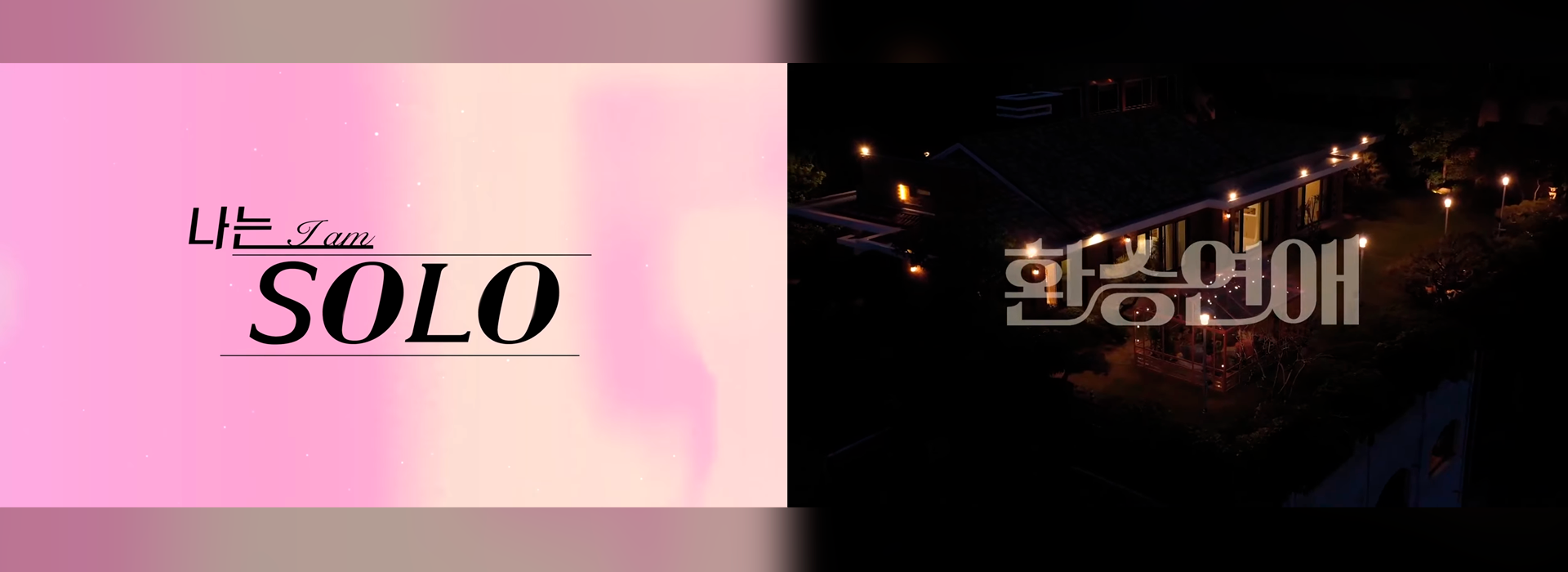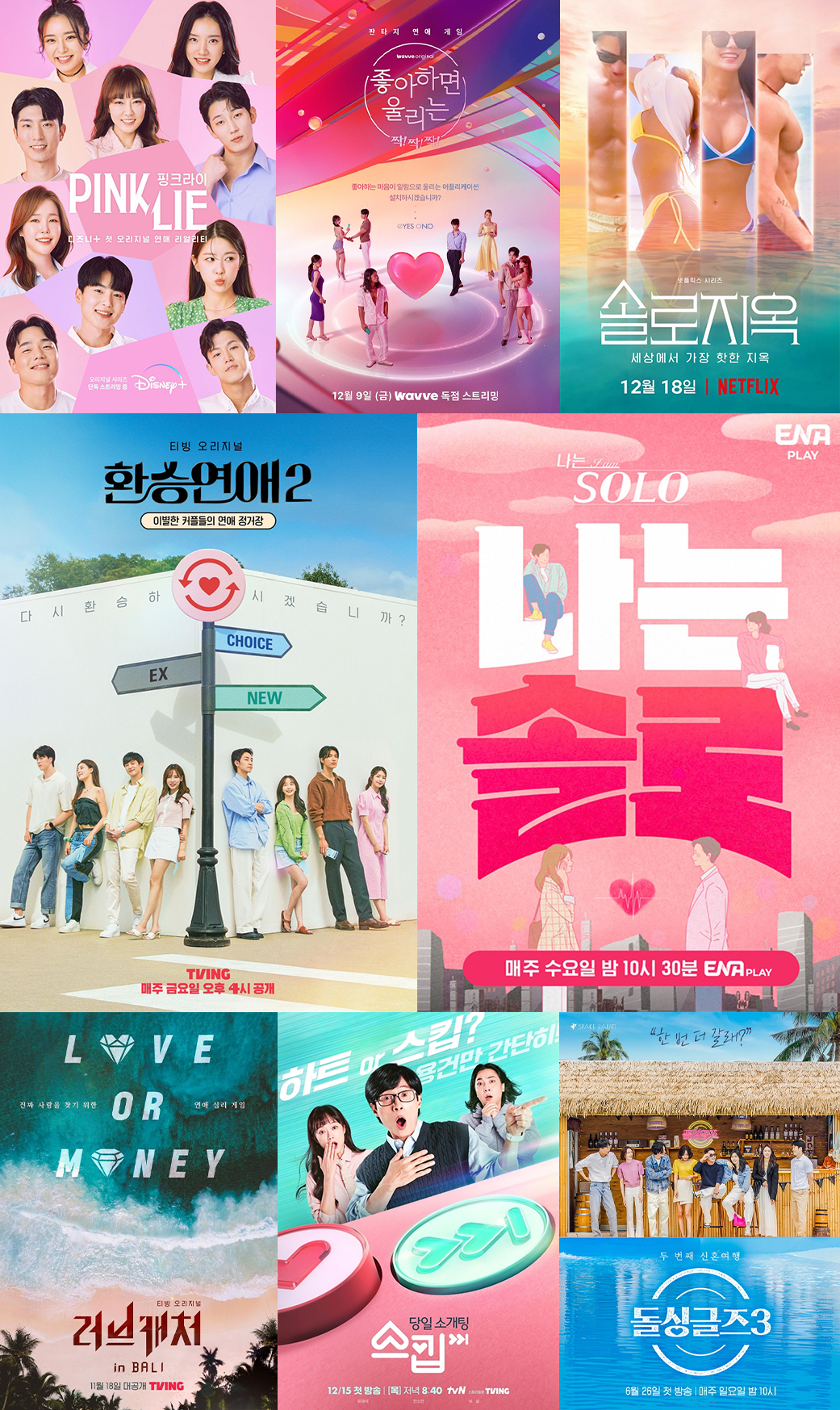
“People used to describe their ideal match by giving a character from a TV drama as an example,” Park Sugyeong, CEO of matchmaking company Duo, said, “but nowadays they ask to be set up with someone like Yeongsuk from I Am Solo.” It’s clear that dating shows are increasingly popular with unmarried adults these days. In 2022, dating programs were the new soap opera. The trend started in early 2022 after Single’s Inferno was first released by Netflix on December 18, 2021 and moved onto the second season of EXchange (also known as Transit Love) on TVING from there in July. MMTG even put out a special viewing party episode for the EXchange finale. Now there’s so much buzz around I Am Solo that the show’s become a standard point of reference for matchmaking companies, as Park mentioned. The show consistently ranks high on GOODDATA Corporation’s chart for the top-ten TV shows excluding drama. This past December alone, three new dating shows came out: Love Alarm: Clap Clap Clap! (Waave), the second season of Single’s Inferno and The Skip Dating (tvN).
-
 ©️ Each program’s respective distributor.
©️ Each program’s respective distributor.
Other than the fact that they’re broadcast on TV, dating shows are just another way for singles to come together and actively look for a date or a future spouse. The show I Am Solo is “ultimately a record of what happens in that confined space over a short period of time,” according to the show’s producer, Nam Gyuhong. But this idea of capturing the intimate process of finding love for all to see makes this form of entertainment controversial. The people who appear on these shows aren’t actors going through the motions laid out for them in a script; choosing someone in such a short time inevitably leads to conflict and intense pressure. “We try to give an undistorted view of all the typical things that arise as a result of these people forming connections, and I think it would be more problematic not to,” Nam said in response. “Because those actions and emotions arise out of love, they’re an important part of a show that’s aiming to be all about affection.” Similarly, the people on I Am Solo maintain an open attitude toward anything so long as it’s “aiming to be all about affection.” On their second day together, they reveal all their personal information, including their jobs, annual income, where they live and whether they have any pets. In some cases, they even tell others about their current investments and whether they own or rent their home. Nam said the singles are selected based on “allure—their character and being honest about their social status. They have to be crystal clear.” Thanks to this careful vetting process, the people on the show can get together and quickly judge for themselves the feasibility of dating each person. “Young people these days have a lot of experience receiving help from qualified people from the time they’re young, so they think they should seek consultation for marriage, too, since it’s an incredibly important part of life,” Park said to help explain why twenty- and thirty-somethings are increasingly turning to matchmaking services. “I think they look at how cost-effective it is by weighing what they get against the price,” adding, “Maybe it’s because marriage is now looked at as an option with potential rather than an absolute requirement, but they don’t think they should go about it just any old which-way. They say they now feel they’ll want to marry someone who has everything they’re looking for.” There’s a lot you need to know about a person before you marry or even just date them, and it can take a long time for that reason. Dating shows demonstrate a heavily compressed version of this active process. Viewers enjoy the experience from a distance but also end up seeing that, even when you can check out every little condition and weigh every emotion, deriving happiness from the ever more involved fantasy of love and marriage is no easy task. Even on I Am Solo, plenty of people can’t find a date because they aren’t popular despite their job or high income, or simply choose no one in the end because they can’t find anyone they could see themselves with.
Unauthorized reproduction and distribution prohibited.